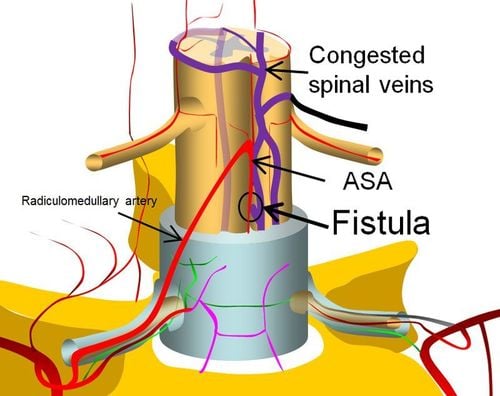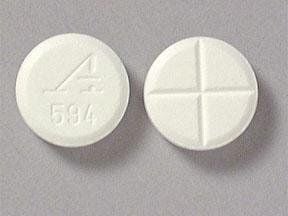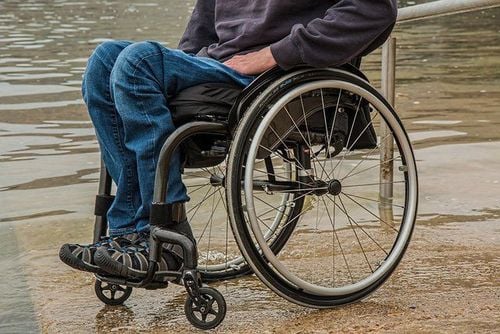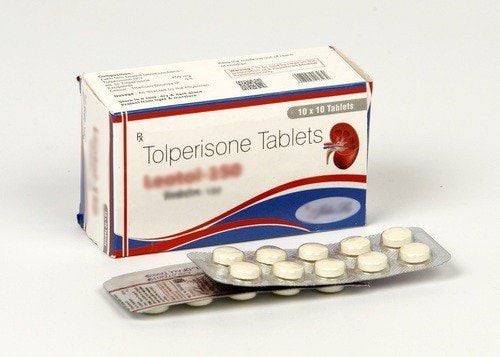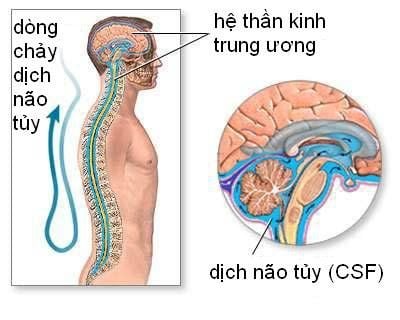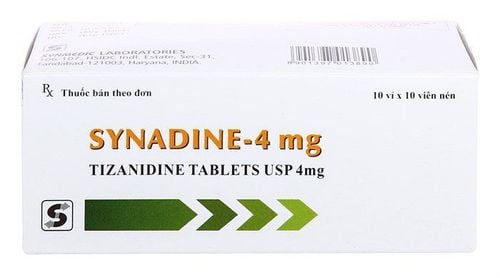This is an automatically translated article.
The article is professionally consulted by Doctor Le Thu Huong - Rehabilitation Doctor, Regenerative Medicine Clinic Unit and Educational Psychology - Vinmec Times City International Hospital.
To help patients with spinal cord injury recover function requires a very long and patient process, combining many treatment methods and caring skills of loved ones, especially the will to overcome difficulties. of the patient.
1. What is a spinal cord injury?
The spinal cord is located in the spinal canal which is part of the central nervous system. The main function of the spinal cord is to transmit nerve signals from the brain down and to transmit sensations from the body to the brain. This is also the center of the autonomic reflex arcs.
Spinal cord injury is a term used to refer to a group of diseases that affect the spinal cord, the common causes are spinal trauma, myelitis, hemorrhage or infarction... When the spinal cord is damaged The damage will affect the sending and receiving of signals between the brain and the body's systems, leading to disturbances in movement, sensation, automatic reflexes below the level of injury and affect the function of the macrophages. urination as well as sex.
2. Common symptoms of spinal cord injury
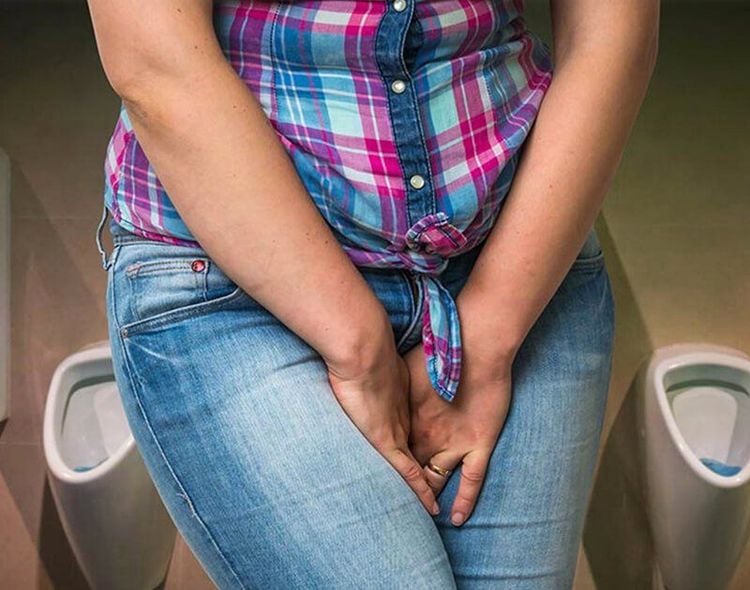
Depending on the location and severity of the injury, the patient will have different symptoms. Common symptoms are:
Weakness, motor paralysis below the level of injury: quadriplegia (arms, legs, trunk) with cervical spinal cord injury, 2 leg paralysis with thoracic, lumbar, and spinal cord concussion. Sub-injury dysesthesia: Decrease, or loss of sub-lesional sensation, neuropathic pain Urinary incontinence AD attack - Autonomic dysfunction : Headache, sweating, flushing, increased blood pressure paroxysmal, bradycardia Pneumonia, respiratory failure due to respiratory paralysis Other problems: Skin ulcers, muscle atrophy, stiffness, ankylosing spondylitis, ectopic ossification, limb embolism, pneumonia, urinary tract infection , depression...
3. Causes of spinal cord injury
Some possible causes of spinal cord injury in patients include:
Spinal trauma: a leading cause of spinal cord injury Spinal cord disease: Myelitis, multiple sclerosis : marrow hemorrhage, spinal infarction Disc disease: Severe disc herniation. Cancer.
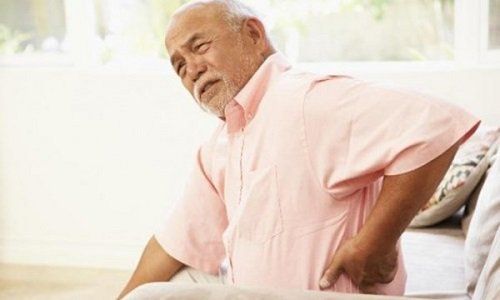
4. Diagnosis and rehabilitation treatment after spinal cord injury at Vinmec
In order to accurately diagnose whether a patient has spinal cord injury or not, what is the cause of the spinal cord injury, and to provide a treatment plan, rehabilitation after spinal cord injury for the patient, the doctor will conduct Perform clinical examination and appoint the patient to perform some of the following tests:
Magnetic resonance imaging (MRI) of the spine is a very good method in diagnosing spinal cord injury and the cause of the injury. bone damage, chest X-ray to diagnose diaphragmatic paralysis Computerized tomography of the spine helps diagnose bone lesions. Some Notes:
For patients with spinal cord injury due to trauma: Once it is determined that the patient has a spinal cord injury, first aid will be performed by placing the patient on a flat hard board, and immobilizing the neck. with a splint, check the airway and the ability to breathe and circulate. Once the spine is stable and immobile, the doctor will inject a drug used in the treatment of acute spinal cord injuries (treated within 8 hours of the injury)
In some cases In particular, the doctor may perform surgery to stabilize the spine or remove bone fragments, foreign bodies, broken discs (herniated) or broken vertebrae from the patient's body.
For patients with spinal cord injury due to disc herniation: Normally, herniated disc can only cause sensory disturbances, numbness in the body part is controlled by the pinched nerve, can be treated medically . However, when a patient shows signs of muscle atrophy, motor paralysis, and bowel disorders due to disc herniation and damage to the spinal cord, immediate surgery is required to avoid serious complications. Treatment with rehabilitation: it is necessary to practice as soon as possible to recover from spinal cord injury better and avoid serious complications of spinal cord injury. In rehabilitation, patients will be able to fully recover their body after spinal cord injury by the following methods: Mobility therapy: diverse range of motion exercises, depending on the extent of the patient's injury with the purpose of maintaining joint range of motion, avoiding muscle atrophy, joint stiffness, inhibiting spasticity of arms and legs, enhancing maximum mobility of the body part below the level of injury, being active in movement Rehabilitation exercise respiratory function: improve respiratory ability, enhance cough ability, limit and improve pneumonia. daily activities. At this unit, patients can be measured and made splints to assist hand function such as grip aids, computer typing aids and adaptive devices. Urinating: Pelvic floor muscle exercises, colon exercises, anal stimulation exercises. Machine treatment: anal electrical stimulation, sacral nerve stimulation, Bio-feedback, abdominal interference. Guidelines for intermittent catheterization for patients with urinary disorders
Unit of Regenerative Medicine Clinic and Educational Psychology Center of Regenerative Medicine Center, Vinmec International General Hospital only prestigious in the field of rehabilitation exercises for patients with spinal cord injury, meningeal hernia, children with cerebral palsy...
In addition to using modern rehabilitation machines, the Clinic Unit Regenerative medicine and educational psychology also have a team of rehabilitation specialists to help patients get the most out of their functional abilities, combined with anti-ulcer care, use of mobility aids (wheelchair), how to change posture, overcome the loss of feeling of defecation...
The team of experienced doctors and rehabilitation specialists at the Unit includes:
Master, Doctor Vu Duy Chinh: Over 17 years of experience in examination and treatment of diseases in the field of Physiotherapy/Rehabilitation, especially diseases of field: Neurology, Trauma and Pediatrics... Doctor Le Thu Huong : Nearly 5 years of experience in Rehabilitation. In 2017, Dr. Huong obtained the degree of Resident Doctor of Rehabilitation. Doctor Bui Thi Hang: 8 years of experience in Pediatrics. In 2013, Dr. Hang obtained a resident doctor degree and a master's degree in pediatrics.
Please dial HOTLINE for more information or register for an appointment HERE. Download MyVinmec app to make appointments faster and to manage your bookings easily.





